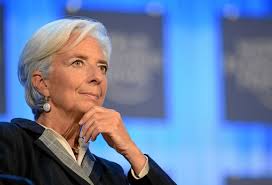In her speech, during the Fintech Festival in Singapore, Christine Lagarde, IMF Managing Director, recognized that digitalization has its influence on the financial sector. So she said: “A new wind is blowing, that of digitalization. In this new world, we meet anywhere, any time. The town square is back – virtually, on our smartphones. We exchange information, services, even emojis, instantly… peer to peer, person to person. We float through a world of information, where data is the “new gold”- despite growing concerns over privacy, and cyber-security. A world in which millennials are reinventing how our economy works, phone in hand. And this is key: money itself is changing. We expect it to become more convenient and user-friendly, perhaps even less serious-looking.”
Questions like “What role will remain for cash in this digital world?” is IMF managing Director asking herself during her speech. Fot example Lagarde sees the following development in the digital world: “Already signs in store windows read ‘cash not accepted.’ Not just in Scandinavia, the poster child of a cashless world. In various other countries too, demand for cash is decreasing – as shown in recent IMF work. And in ten, twenty, thirty years, who will still be exchanging pieces of paper?”
Lagarde also mentions that Bank deposits too are feeling pressure from new forms of money. “Think of the new specialized payment providers that offer e-money—from AliPay and WeChat in China, to PayTM in India, to M-Pesa in Kenya. These forms of money are designed with the digital economy in mind. They respond to what people demand, and what the economy requires.”
Cryptocurrencies
The IMG Managing Director said: “Even cryptocurrencies such as Bitcoin, Ethereum, and Ripple are vying for a spot in the cashless world, constantly reinventing themselves in the hope of offering more stable value, and quicker, cheaper settlement.” Lagarde points that al these changes brings the following question: “What is the role of the central bank in this new monetary landscape” Some suggest the state should back down.
“Providers of e-money argue that they are less risky than banks, because they do not lend money. Instead, they hold client funds in custodian accounts, and simply settle payments within their networks. For their part, cryptocurrencies seek to anchor trust in technology. So long as they are transparent – and if you are tech savvy – you might trust their services. Still, I am not entirely convinced. Proper regulation of these entities will remain a pillar of trust.”
Should we go further?
“Beyond regulation, should the state remain an active player in the market for money? Should it fill the void left by the retreat of cash? Let me be more specific: should central banks issue a new digital form of money? A state-backed token, or perhaps an account held directly at the central bank, available to people and firms for retail payments? True, your deposits in commercial banks are already digital. But a digital currency would be a liability of the state, like cash today, not of a private firm.”
“This is not science fiction. Various central banks around the world are seriously considering these ideas, including Canada, China, Sweden, and Uruguay. They are embracing change and new thinking, as indeed is the IMF.”



